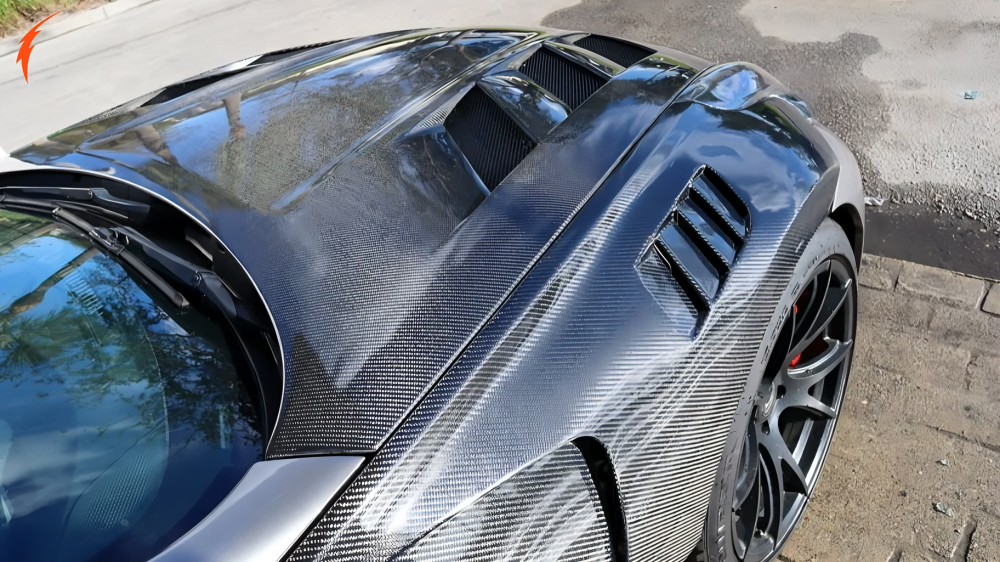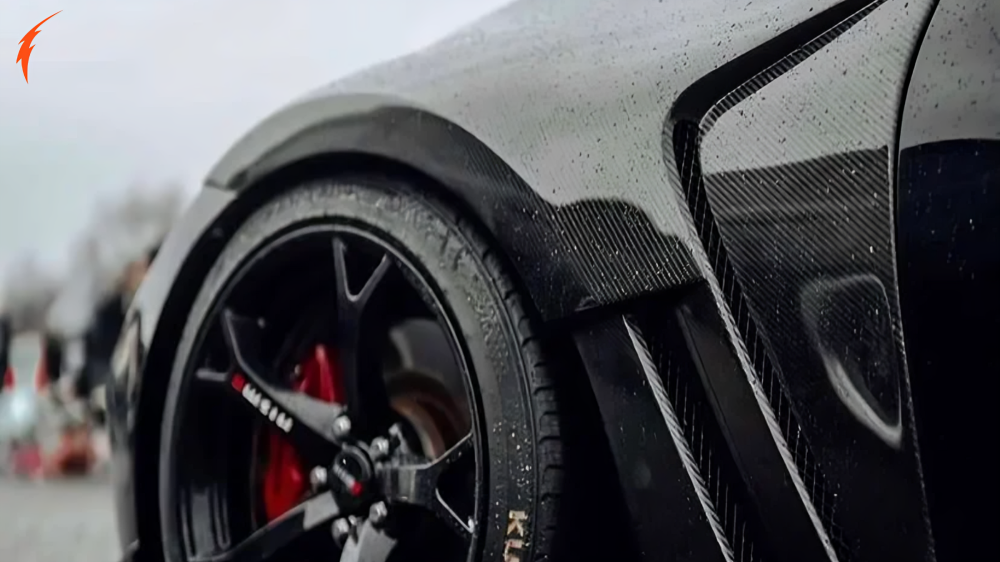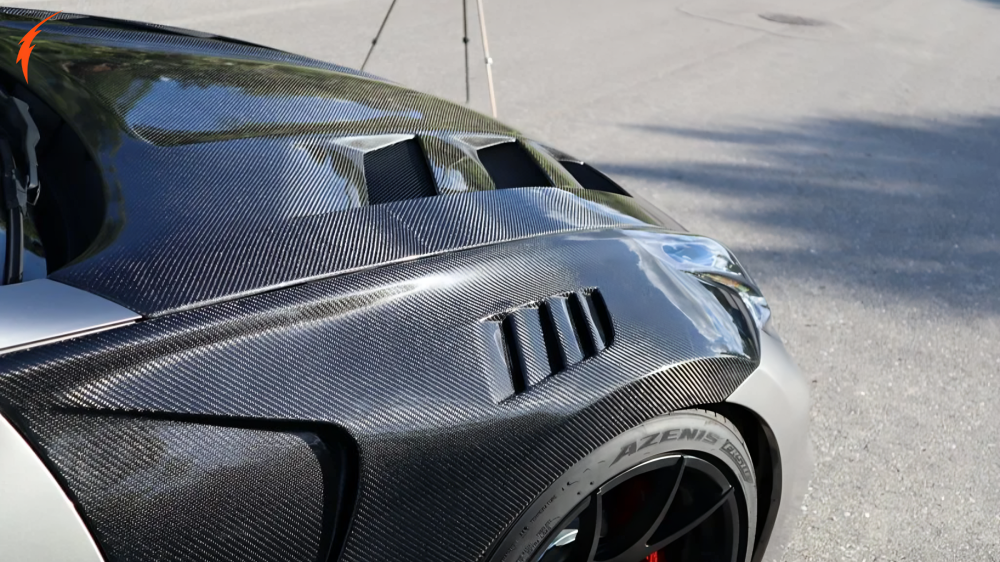In the world of advanced materials, Carbon Fiber 379Z stands out as an innovative and highly versatile composite. From its unique composition to its incredible strength-to-weight ratio, Carbon Fiber 379Z has quickly become a material of choice in industries ranging from automotive engineering to aerospace design. Known for its exceptional combination of performance, durability, and style, this material has revolutionized the way designers, engineers, and manufacturers approach everything from sports cars to luxury goods. In this article, we will explore the defining characteristics of Carbon Fiber 379Z, focusing on its performance, durability, and style, and how these qualities make it indispensable in various high-end applications.
What is Carbon Fiber 379Z?
Before delving into its various applications, it’s important to understand what Carbon Fiber 379Z is and what sets it apart from other types of carbon fiber. Carbon fiber is a light-weight, excessive-electricity cloth made from thin strands of carbon atoms bonded together in a crystalline structure. The number “379Z” is associated with a specific formulation of carbon fiber, characterized by enhanced mechanical properties and improved manufacturing techniques. Carbon Fiber 379Z is designed to offer greater strength, flexibility, and performance compared to standard carbon fiber, which makes it highly desirable in industries where precision, strength, and lightweight properties are paramount.
Unlike traditional carbon fiber, which is often woven in a simple, two-dimensional pattern, Carbon Fiber 379Z benefits from a more intricate weave and improved resin bonding. These enhancements contribute to a material that is not only stronger and lighter but also more versatile in its applications.

Performance of Carbon Fiber 379Z
When it comes to high-performance materials, the primary consideration is always how well the material performs under pressure. Carbon Fiber 379Z excels in this area due to its exceptional mechanical properties. Below, we will explore some of the key performance attributes of Carbon Fiber 379Z:
Lightweight Strength
One of the most significant advantages of Carbon Fiber 379Z is its outstanding strength-to-weight ratio. This composite material is significantly lighter than metals such as steel or aluminum, making it ideal for applications where weight reduction is a priority. In industries like automotive engineering, where every ounce counts, Carbon Fiber 379Z helps reduce the overall mass of vehicles, thereby improving fuel efficiency and accelerating performance.
The lightweight nature of Carbon Fiber 379Z is particularly important in the aerospace industry, where the weight of an aircraft directly impacts fuel consumption and flight efficiency. By incorporating Carbon Fiber 379Z into the design of aircraft components, manufacturers can reduce the overall weight without compromising strength or safety.
High Tensile Strength
In addition to being lightweight, Carbon Fiber 379Z is incredibly strong. Tensile electricity refers to a material’s capacity to face up to breaking beneath tension. The tensile strength of Carbon Fiber 379Z is significantly higher than that of many metals, making it a go-to option for applications that require a material that can withstand high forces without breaking.
This strength makes Carbon Fiber 379Z suitable for use in critical structural components, such as vehicle frames, aerospace fuselages, and even sporting equipment. Its ability to absorb and distribute stress without deforming or breaking makes it a superior choice for industries where performance and safety are paramount.
Impact Resistance
Impact resistance is another critical performance feature of Carbon Fiber 379Z. Unlike materials that can crack or fracture when subjected to sudden forces, Carbon Fiber 379Z is designed to absorb and dissipate energy efficiently. This makes it ideal for use in environments where materials may be exposed to high impacts or collisions.
In motorsports, for example, Carbon Fiber 379Z is used in car bodies, bumpers, and other components that must withstand the rigors of high-speed racing. Similarly, in aerospace applications, the material’s ability to resist impact makes it ideal for parts that may experience extreme pressures during flight or re-entry into the atmosphere.
Thermal Stability
Another important aspect of Carbon Fiber 379Z is its ability to withstand high temperatures without losing its structural integrity. Unlike metals that can warp or degrade under intense heat, Carbon Fiber 379Z maintains its strength and shape even in extreme conditions. This makes it perfect for use in applications where exposure to heat is common, such as in automotive exhaust systems or turbine blades in jet engines.
The material’s thermal stability is also why it is favored in aerospace and military applications, where components must operate in high-heat environments without failure. The ability to remain strong under heat stress makes Carbon Fiber 379Z a trusted material for engineers and manufacturers across various high-performance industries.

Durability of Carbon Fiber 379Z
When it comes to durability, Carbon Fiber 379Z is in a class of its own. Durability is a key concern in industries where equipment and machinery are expected to perform over long periods under harsh conditions. Carbon Fiber 379Z is engineered to offer long-lasting performance even in the most demanding environments. Here are some of the reasons why Carbon Fiber 379Z is so durable:
Corrosion Resistance
Unlike metals that are prone to rust and corrosion when exposed to moisture or chemicals, Carbon Fiber 379Z is highly resistant to corrosion. This makes it an excellent choice for applications in harsh environments, such as marine or chemical industries, where exposure to corrosive substances is common.
The resistance to corrosion ensures that products made from Carbon Fiber 379Z can withstand the test of time, requiring less maintenance and providing greater longevity. This feature is especially beneficial in industries like aerospace, where the lifespan of components is critical, and regular repairs or replacements are costly.
Fatigue Resistance
Materials that are subjected to constant stress or repetitive loading can develop weaknesses over time, eventually leading to failure. Carbon Fiber 379Z is designed to resist fatigue, meaning it can endure repeated stress cycles without experiencing degradation or failure. This makes it highly suitable for use in applications that involve repetitive motion or constant stress, such as in high-performance sports equipment or automotive suspension systems.
The ability of Carbon Fiber 379Z to resist fatigue ensures that products made from this material can maintain their performance over time, even in demanding conditions.
UV Stability
Exposure to ultraviolet (UV) light can cause many materials to degrade over time, leading to discoloration, brittleness, and eventual failure. However, Carbon Fiber 379Z is designed to resist UV damage, making it suitable for both indoor and outdoor applications. Whether used in automotive parts exposed to sunlight or in outdoor sporting gear, Carbon Fiber 379Z retains its strength and visual appeal even when subjected to prolonged sun exposure.
Resistance to Chemicals
Another durability benefit of Carbon Fiber 379Z is its resistance to chemical damage. Many materials can degrade when exposed to harsh chemicals or solvents, but Carbon Fiber 379Z maintains its integrity even in environments where chemical exposure is frequent. This resistance makes it a popular choice for industries like chemicals and pharmaceuticals, where parts must be able to withstand exposure to a variety of potentially damaging substances.
Style and Esthetics of Carbon Fiber 379Z
Beyond its outstanding performance and durability, Carbon Fiber 379Z also excels in terms of style and aesthetic appeal. The sleek, modern appearance of carbon fiber has made it a desirable material for high-end products across various industries. The unique woven texture of Carbon Fiber 379Z offers both functional and visual appeal, making it an ideal choice for luxury goods and cutting-edge designs.
Sleek and Modern Appearance
One of the most attractive features of Carbon Fiber 379Z is its distinctive woven texture. The interlacing strands of carbon create a visually striking pattern that conveys a sense of high-tech sophistication. This aesthetic quality makes Carbon Fiber 379Z highly sought after in industries like automotive design, where the appearance of a product is just as important as its performance.
Customization Options
Another appealing aspect of Carbon Fiber 370Z is its versatility in design. It can be finished in a variety of ways, including matte, gloss, and satin finishes, allowing manufacturers to tailor the material’s appearance to suit specific product requirements. This flexibility makes Carbon Fiber 370Z suitable for a wide range of applications, from automotive interiors to luxury accessories.
Premium Look and Feel
Carbon Fiber 370Z is often associated with luxury and exclusivity due to its premium performance characteristics and high-tech aesthetic. In industries like fashion and consumer electronics, products made from Carbon Fiber 370Z are seen as symbols of cutting-edge design and technological innovation. Whether it’s a high-end sports car, a custom-made bicycle, or a premium laptop, the use of Carbon Fiber 370Z adds a level of sophistication and style that appeals to discerning consumers.
Applications of Carbon Fiber 379Z
Given its exceptional performance, durability, and style, Carbon Fiber 370Z has a wide range of applications across multiple industries.
Automotive Industry
In the automotive industry, Carbon Fiber 370Z is used to reduce the weight of vehicles without sacrificing strength. The material’s lightweight properties allow manufacturers to improve fuel efficiency, enhance acceleration, and optimize overall performance. Whether in the construction of car bodies, wheels, or internal components, Carbon Fiber 370Z plays a crucial role in making modern cars lighter, faster, and safer.
Aerospace
Aerospace manufacturers have long relied on carbon fiber composites for their strength and lightness. Carbon Fiber 370Z is ideal for aircraft components such as wings, fuselages, and engine parts, where weight reduction and performance are critical. Its high tensile strength and resistance to impact make it an essential material for ensuring the safety and efficiency of aircraft.
Sports Equipment
From bicycles to tennis rackets, Carbon Fiber 370Z is increasingly being used in sports equipment. Athletes benefit from the material’s strength, lightness, and durability, which help improve performance and extend the lifespan of sporting gear.
Fashion and Luxury Goods
Carbon Fiber 370Z is also making waves in the fashion industry, where its unique look and high-end appeal have caught the attention of designers. Luxury items such as bags, watches, and wallets incorporate Carbon Fiber 370Z to create exclusive, stylish products that stand out in a competitive market.
More: Reddit
Conclusion
Carbon Fiber 379Z is a game-changing material that brings together exceptional performance, remarkable durability, and striking style. Its strength, lightweight properties, and resistance to impact and corrosion make it an indispensable component in industries that demand the highest standards of safety, efficiency, and performance. Whether in high-performance cars, cutting-edge aerospace components, or luxury fashion items, Carbon Fiber 370Z is poised to continue revolutionizing the way we approach design and manufacturing. With its unbeatable combination of form and function, Carbon Fiber 370Z is truly a material for the future.



